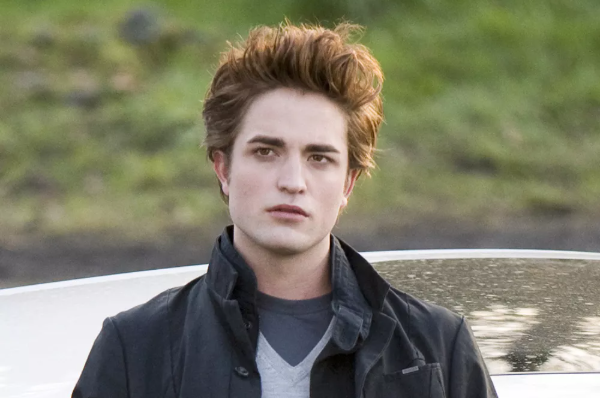Movies
The Enduring Legacy of Twilight: Robert Pattinson Reflects on Its Impact on Vampire Movies
1. Twilight’s Meteoric Rise and Polarizing Reception
When Twilight premiered in 2008, it was an instant global phenomenon. Adapted from Stephenie Meyer’s bestselling novels, the series followed the story of Bella Swan, an ordinary teenager who falls in love with Edward Cullen, a brooding vampire. Fans were captivated by the romanticized depiction of vampires, characterized by glittering skin, deep moral conflict, and an immortal love story that defied traditional horror tropes.
However, critics were quick to dismiss the series, branding it as overly melodramatic and shallow. Many believed that Twilight diluted the essence of the vampire genre, transforming it from something dark and terrifying into a teenage romance spectacle. Traditionalists lamented the loss of gothic horror elements found in classics like Dracula or modern masterpieces like Interview with the Vampire. For them, Twilight represented a departure from the sophistication and terror typically associated with vampire mythology.
Despite the criticism, Twilight grossed over $3.4 billion at the global box office, firmly cementing itself in pop culture. It inspired everything from memes to merchandise, while spawning debates about its artistic merit and cultural relevance. Pattinson’s recent comments highlight that, even years after the franchise ended, its impact remains a subject of contention.

2. Robert Pattinson: An Unlikely Edward Cullen
Robert Pattinson’s casting as Edward Cullen was initially met with skepticism, particularly from diehard fans of the book series who couldn’t picture the British actor as the swoon-worthy vampire. At the time, Pattinson was best known for his brief role as Cedric Diggory in Harry Potter and the Goblet of Fire. However, his portrayal of Edward won fans over, propelling him to global superstardom.
Over the years, Pattinson has been vocal about his complex relationship with Twilight. In his recent interview with EW, he shared that people still tell him the saga “ruined vampire movies.” This sentiment reflects the broader cultural backlash against Twilight—a franchise that, for many, redefined the vampire genre in ways that some considered reductive or trivial.
Despite the criticism, Pattinson’s performance in Twilight paved the way for a dynamic and diverse acting career. He has since garnered critical acclaim for his roles in indie films such as Good Time and The Lighthouse, and he has embraced more mainstream projects, such as his portrayal of Batman in The Batman. Pattinson’s evolution as an actor demonstrates his ability to transcend the shadow of Edward Cullen, even as the Twilight saga continues to shape his public persona.
3. The Changing Face of Vampires in Cinema
Before Twilight, vampires in cinema were often depicted as menacing, seductive, and morally ambiguous figures. From Max Schreck’s eerie portrayal of Count Orlok in Nosferatu (1922) to the charismatic but lethal vampires of The Lost Boys (1987), the genre thrived on its ability to terrify and intrigue audiences in equal measure.
Twilight disrupted this archetype, presenting vampires as sympathetic and relatable beings. Edward Cullen, for example, struggled with his predatory instincts and sought to live ethically, feeding only on animal blood. This depiction resonated with younger audiences, who saw vampires as less of a threat and more of a romantic ideal.
Critics argue that this shift in portrayal diluted the essence of vampire lore, making it more accessible but less compelling. However, defenders of the series argue that Twilight simply modernized the genre, offering a fresh perspective that appealed to contemporary audiences. The saga’s influence can be seen in subsequent vampire-themed media, such as The Vampire Diaries and True Blood, which also blended romance with supernatural drama.
Even so, the debate persists: did Twilight expand the boundaries of vampire storytelling, or did it compromise the genre’s integrity for commercial success? Pattinson’s remarks suggest that he, too, grapples with this question, acknowledging both the franchise’s cultural impact and its divisive legacy.
4. The Cultural Impact of Twilight: Beyond Vampires
While Twilight is often criticized for its portrayal of vampires, its cultural impact extends far beyond the supernatural genre. The saga ushered in a new era of YA adaptations, paving the way for franchises like The Hunger Games and Divergent. It also reignited interest in paranormal romance, a subgenre that continues to thrive in literature and film.
Moreover, Twilight became a touchstone for millennial and Gen Z culture, inspiring countless parodies, fan fiction, and online discourse. The “Team Edward vs. Team Jacob” rivalry, for example, became a cultural phenomenon in its own right, sparking debates about loyalty and romance. The saga also introduced a new generation to themes of eternal love, sacrifice, and self-discovery, resonating with audiences in ways that critics often overlooked.
Pattinson’s reflections on the franchise reveal a nuanced understanding of its impact. While he acknowledges the criticism, he also recognizes that Twilight opened doors for diverse storytelling and challenged traditional genre conventions. This dual legacy highlights the complexities of cultural phenomena: they can be both groundbreaking and contentious, beloved and reviled.
5. Looking Ahead: The Legacy of Twilight and Vampire Media
More than a decade after the release of the final Twilight film, the saga’s legacy endures. It continues to be a touchpoint for discussions about the evolution of vampire media, the rise of YA adaptations, and the dynamics of fandom culture.
Pattinson’s remarks serve as a reminder that cultural phenomena are rarely one-dimensional. While Twilight may have its detractors, it also inspired a new generation of storytellers, audiences, and creators. Its influence can be seen in everything from streaming series to fan conventions, proving that its impact extends far beyond the big screen.
As vampire cinema continues to evolve, Twilight will likely remain a subject of both admiration and critique. Whether you view it as a groundbreaking reimagining of vampire lore or a departure from tradition, there’s no denying its role in shaping modern pop culture. And as Pattinson continues to navigate his post-Twilight career, his reflections on the saga remind us that even the most divisive stories can leave a lasting impression.
From: Doublejoydesigns
